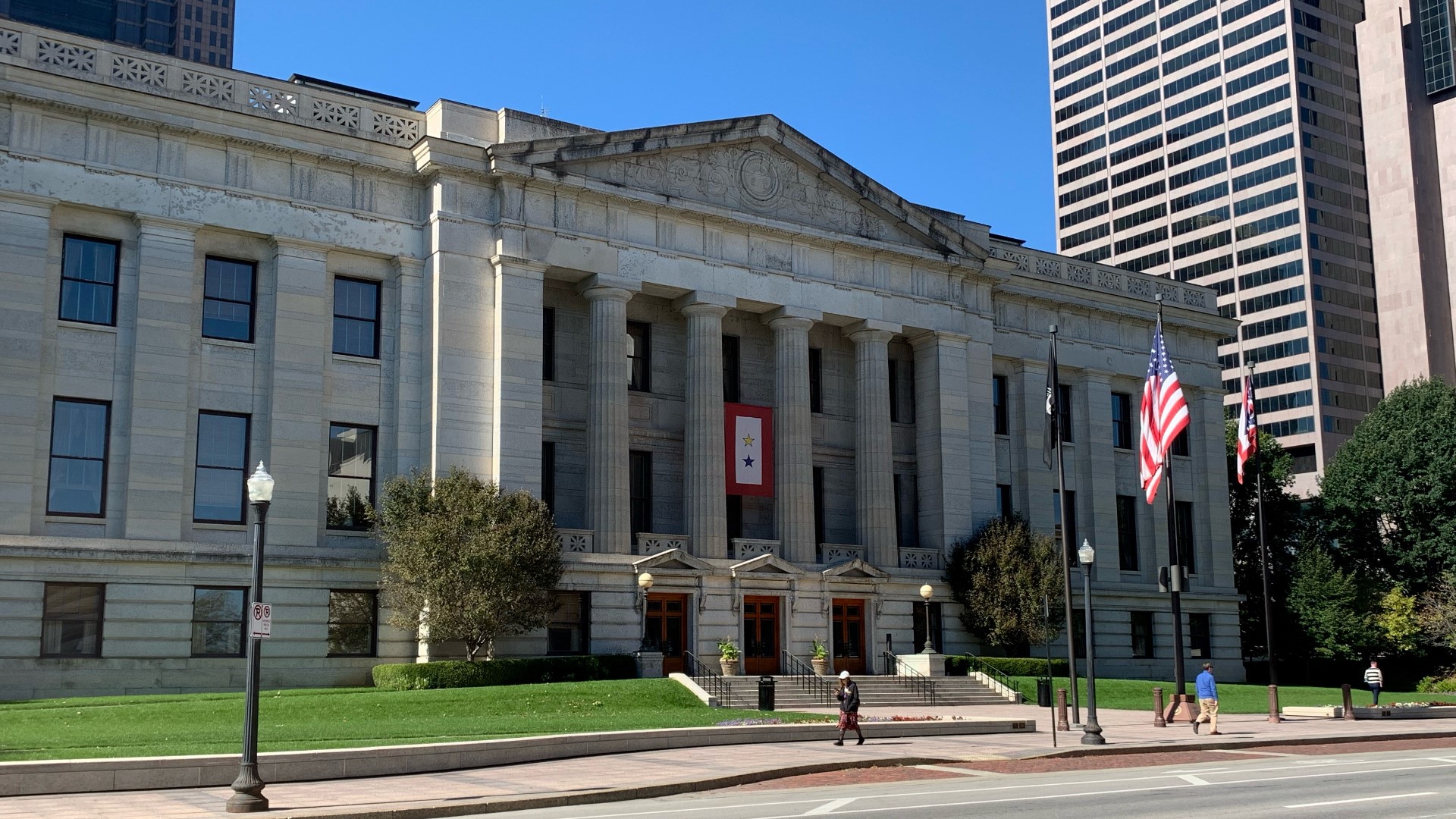COLUMBUS, Ohio — Both sides of the debate over Ohio House Bill 454 agree on one thing: this is a life-or-death matter for the state’s young people. But there is fierce disagreement on exactly what that means.
HB 454, also known as the SAFE (Save Adolescents from Experimentation) Act, would ban gender-affirming care for minors who are transgender or gender non-conforming. Insurance and Medicaid would not cover the treatment, and healthcare providers who do provide it would be penalized. In addition, school nurses, counselors, teachers and principals would be banned from withholding students’ gender identity concerns from parents.
“Save the adulting for adults, and let kids be kids,” said. Rep. Gary Click, R-Vickery, who sponsored the bill.
He argues the brains of minors are not fully developed enough to fully understand the long-term impact of gender-affirming care.
“When a person gets to be 18 and is an adult, make up your own mind, live how you want to, that’s okay,” he said. “But when you are a minor, you don’t understand these things.”
The American Pediatric Association strongly supports gender-affirming care, even going so far as partner with the ACLU to support legal briefs in several states.
But Rep. Click is not swayed by the leading medical guidance.
The majority’s not always right,” he said. “The majority thought smoking cigarettes was okay. The majority used to use leeches. The majority is not always right when it comes to medicine. They are influenced by lobbyists, they are influenced by peer pressure groups. They are not influenced by science.”
But Rep. Click did believe the science he says was presented during Thursday’s hearing, which offered proponents of HB 454 a chance to speak.
One of those speakers was Dr. Daniel Weiss, who practices in northern Ohio. While he does not treat pediatric patients, he testified in favor of the bill.
He argued that doctors should not allow children to self-diagnose themselves and said there are many doctors who agree with him but feel silenced by advocacy groups that support gender-affirming care.
“I think it’s insane to just delegate care to the child,” Dr. Weiss said. “It’s irresponsible, and it’s dangerous, and I think the state has a responsibility in helping parents out in this because there’s a lot of confusion, and there’s even confusion amongst physicians.”
Two of the more controversial speakers at the hearing were from the Alliance Defending Freedom, which has been designated as a hate group by the Southern Poverty Law Center, and the American College of Pediatricians, which the Southern Poverty Law Center describes as a fringe anti-LGBTQ hate group.
“Today’s hearing brought in out-of-state hate groups with an extreme agenda to bully our kids,” said Rep. Beth Liston, D-Dublin. “Vulnerable children in Ohio should have the freedom to access evidence-based healthcare and should not be used as pawns by politicians.”
Rep. Liston, who is a doctor, spent a lot of time during Thursday’s hearings questioning the science and studies cited by many of the speakers.
Lawmakers also heard from Helena Kerschner, who described herself as a de-transitioned woman. She says she spent five years, from adolescence into young adulthood, living as a transgender man. And she now regrets that.
“I am here to support the SAFE Act because it would protect adolescents, like I once was, from having irreversible medical interventions before they have the chance to mature and understand themselves in a more complex way,” she said.
Kerschner describes taking testosterone and changing her name, while now feeling she was pushed toward transitioning from both healthcare providers and school leaders.
“I am here out of a grave concern for those teenage girls seeking these procedures because I know, based on personal experience as a member of the trans community and the emerging testimonies of de-transitioners like myself, that there are unique needs going completely unaddressed in this cohort,” she said.
Just outside the hearing room was a group of protestors, rallying in opposition of the bill. The voices did carry into the room, and Rep. Click admitted he could hear them.
“We are being as loud as we can to try to overshadow the people who are trying to gaslight our community, spew ignorance and intolerance and try to sell lies that taking care of children and affirming their identity and being good caretakers is somehow abusive,” said Felicia DeRosa, a transgender woman and member of Trans Talks.
She took specific exception to the portion of the law that would ban school leaders from withholding information from parents.
“I would never betray the trust of my students if students came to me and said that, I am this identity, or that identity, but please don’t tell my parents because it’s not safe at home,” she said. “I’m not going to betray that trust, I don’t care what the law says.”
DeRosa describes decades of trauma in her own life caused by not being able to identify in a way that was not true to her authentic self. That’s why she says she showed up on Thursday and why she plans to speak before lawmakers at a future hearing.
“I’m here to protect the future of all children, especially our trans and LGBT and BIPOC children so that they can have the same opportunities as any other kid to grow up in a healthy and safe environment, to have the freedom to explore who they are and express themselves in a true and authentic way and, therefore, be uplifted and develop into healthy and productive members of society,” she said.
Other hearings, including one for opponents of the bill to speak, will be held in the coming weeks.

